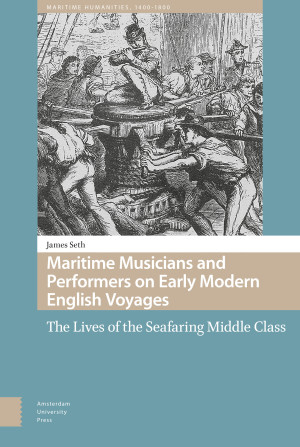"This original and accessible book draws on archival sources and embraces social history, labor history, and the history of performance. The stories of these artists, actors, dancers, and musicians who are thrown together with common seafarers and how they are forced to (or are delighted to) navigate between the sailors’ rough ways and the courtly pretensions of their senior officers makes a striking new contribution to the history and sociology of shipboard life during the early modern period."
- Colin Dewey, California State University Maritime Academy
''Seth’s method is to be expansive, considering as wide a range of performers — singers, musicians, dancers, play actors — as he can, and attempting as full a recapitulation of the lives of the performers as sources will allow. And it is his capacious conception of music and performance that makes this work unique; his chapters include not only the expected attention to military and civilian performers,
as well as interest in the performative underpinnings of rituals and diplomatic entertainments; they also explore signaling work and the importance of nonverbal communication to early modern colonizers.''
- Manushang N. Powell, Eighteenth-Century StudiesWinter 2024, V.57.2
''Seth provides the reader with a fascinating overview of the history of maritime musicians onboard ship from the mid sixteenth to early eighteenth century, which explores the varied roles and functions that maritime musicians were expected to play – often extending far beyond the simple act of musicianship. This study gives us great insight into an area of maritime history that has been notably overlooked in the past and contributes to our understanding of the complex sociocultural systems that were in place within early modern English voyages, opening up new avenues of dis cussion and exploration that greatly benefit current scholarship.''
- Mollie Carlyle, International Journal of Maritime History, April, 2024

